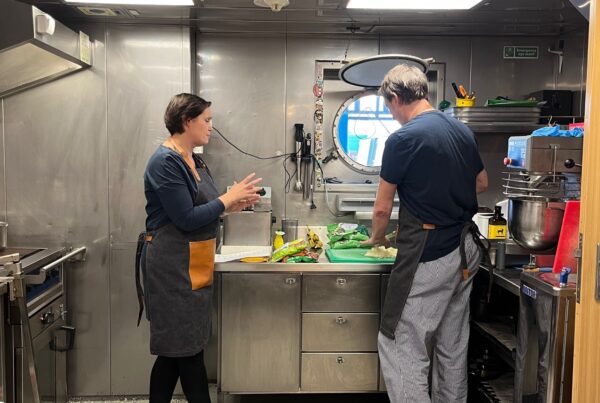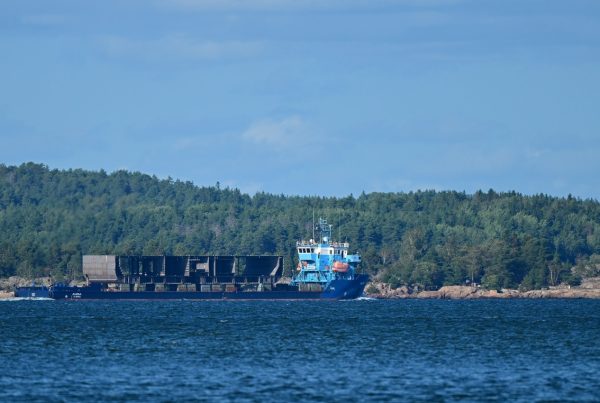As known, predicting the future has always been challenging, and it is no exaggeration to say that under the prevailing circumstances it is even harder than before. Nevertheless, this is the time of the year when many of us are doing the forecasts and planning for the upcoming year. Also, at about this time last year, we made our capacity planning and budgeting for year 2020 based on the best forecasts and information achieved from our customers. Little did we then know, which surprises this year was about to bring.
The year started with an abnormal winter in respect of absence of ice and ice restrictions, except in the most northern ports in Finland and Sweden. A mild winter as such can be considered to make life easier while not having the delays due to ice-conditions and problems with drying the cargo holds etc. However, the frequent and abundant rainfall caused grey hair both for Owners and Charterers while loading and discharging operations could be heavily delayed, in some cases up to one week, only because of precipitation.
Compared to what was to come, this was still rather a small challenge. The COVID-19 pandemic, which was first perceived as rather a distant problem, began to creep closer and by mid-March it had become clear that our region was not be spared from the pandemic. Business after business started to announce lockdowns and besides the concern for people’s health, the uncertainty of how this will affect the business became a big issue.
The reactions were fast and dramatic. Freight market reacted almost immediately, and the drop was both fast and steep. The drop of bulk-cargo volumes caused an oversupply of capacity and consequently spot- rates fell to levels far below break-even, and for a while the mood was close to apocalyptic. Fortunately, our project department was not affected in the same way, as the phase in project shipments is different, and voyages fixed in the past kept our vessels busy during the spring and summer. This by no mean means that there were no challenges caused by the pandemic, but in good collaboration with our charterers we have managed to find solutions.
Pretty soon after the outbreak, and after having adapted to working from different locations, we realized that self-pity won’t be helpful, so we had to grab the bull by the horns and look ahead. With hard and determined work we managed to keep the capacity utilization at a decent level. Planned dockings and maintenance work of the vessels were rescheduled, which also helped to cope with the quietest season. Simultaneously we kept looking ahead and searching for new business opportunities, and if the box at that time looked rather empty, we had to look outside of it. The “Gypsum project” that we were awarded, can be considered as a good example of an outside the box business. This 5-year, publicly founded water protection project does include also sea-transports – which of course makes sense, but our commitment in this case is holistic in respect of having the entire responsibility for sourcing, sea-transports, stevedoring, storage, road transports to rural farms, spreading of the gypsum to the fields and administration of the entire process. All in all, we have transported approximately 40k tons of gypsum, and treated about 10 000 hectares of farmland. The outcome should be that phosphorus emissions into the water from these fields are reduced by half, and we reckon that corresponding areas will be treated in the next years as well.
At the time of writing this, we are about finish the last field work for this year and when wrapping up our experiences so far. I can only state that I’m proud of our team’s ability to grab and handle new challenges. In this project we have also had a good platform for combining our group’s different competencies, and it has worked as an eye-opener, showing the versatility of abilities within our group.
Regardless of the pandemic, work towards more sustainable solutions in our industry is up and running. As an example, the R&D program in order to further increase the supply and usability of our environmentally friendly EcoFuel has not ceased despite the pandemic and the following drop in bunker price. In the coming years we are ambitious to increase the number of low-emission EvoVoy-contracts, that we launched last year. It’s been a little bit surprising but above all gratifying to notice that a growing share of our customers is showing interest in this concept. In a way we see this as a sign that also our customers are thinking long-term – beyond the challenges we face right here and now.
In the last weeks the pandemic has started to pick up again, and I think it makes no sense to speculate on when this will be over or when we could return to what we used to call business as usual, but rather to do our best to adapt. In addition to the obvious goal to care for human health, we need to do our best to keep the wheels rolling, or vessels sailing if you like, as it is our common interest to avoid further downfalls in the economy. Based on the recent development on the freight market, you can sense optimism. From September onwards volumes have bounced back to what we are used to at this time of the year. As the drop was so deep and fast, it is reasonable to predict that the economy will recover at a rapid pace whenever that time comes. However as stated in the beginning – predicting the future has never been easy.
Because it costs nothing to be an optimist, I’d like to end with a quote from our late President Mr. Mauno Koivisto who used to say “ If we don’t know for sure how things will end up, then let’s assume they will end up well”.
Beppe Rosin
Managing director Meriaura Ltd.









